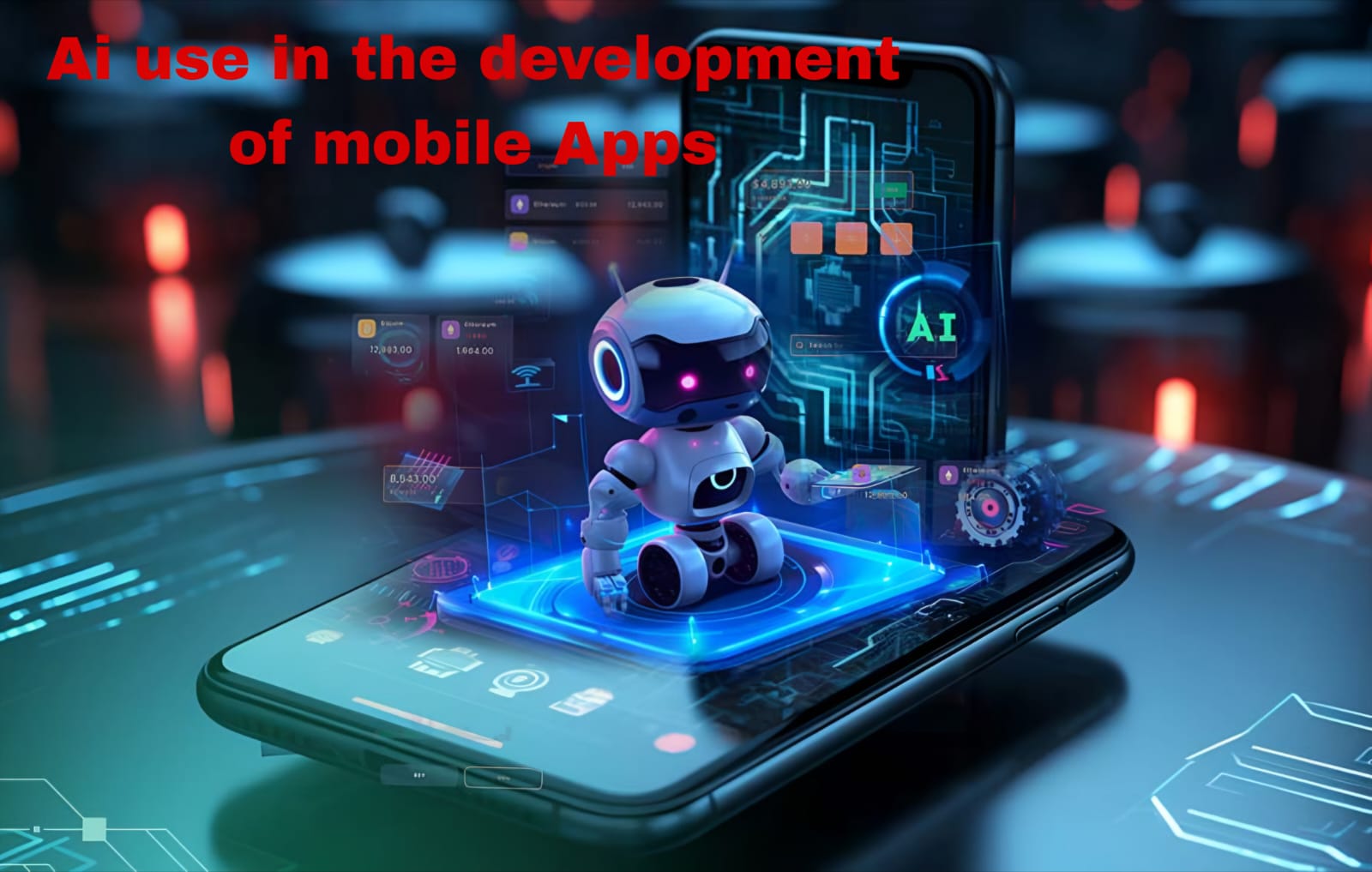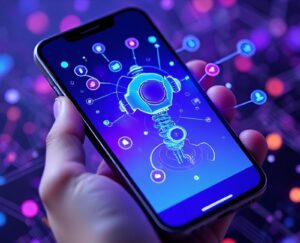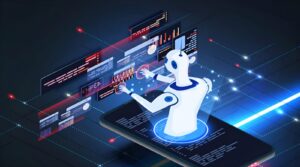
Contents
- 1 The Role of AI in Advancing Mobile App Development
- 1.1 📱 Why AI in Cellular App Improvement?
- 1.2 🧠 Core AI Applied sciences Utilized in Cellular Apps
- 1.3 💡 Actual-World Examples of AI in Cellular Apps
- 1.4 🏗️ How AI Is Utilized Throughout Cellular App Improvement
- 1.5 🛠️ AI Instruments and Frameworks for Cellular Builders
- 1.6 ⚖️ Advantages and Challenges of AI in Cellular Apps
- 1.7 🔒 AI, Privateness, and Moral Issues
- 1.8 🔮 The Way forward for AI in Cellular Apps
- 2 🧾 FAQs
The Role of AI in Advancing Mobile App Development
Synthetic Intelligence (AI) is now not a futuristic idea—it’s right here, remodeling how cell apps are constructed, behave, and evolve. With smartphones turning into the central hub of private {and professional} exercise, integrating AI into cell utility improvement has opened new potentialities for personalization, automation, safety, and consumer engagement.
This text explores how AI is revolutionizing cell app improvement, the applied sciences concerned, sensible examples, and what builders and companies ought to think about when adopting AI of their cell options.

📱 Why AI in Cellular App Improvement?
Conventional cell functions rely closely on static logic and predefined workflows. Whereas efficient to an extent, this mannequin falls brief in dynamic, user-driven environments. AI permits apps to study from information, adapt to consumer habits, and make sensible selections with out fixed human intervention.
Key causes AI is being built-in into cell apps:
-
Personalised consumer expertise
-
Predictive analytics and habits modeling
-
Voice and picture recognition capabilities
-
Enhanced app safety
-
Automated buyer help (chatbots)
-
Smarter navigation and search capabilities
🧠 Core AI Applied sciences Utilized in Cellular Apps
-
Machine Studying (ML)
Machine Studying permits apps to establish patterns and study from consumer interactions. For instance, health apps use ML to suggest exercises based mostly on earlier exercise information. -
Pure Language Processing (NLP)
NLP permits apps to grasp and reply to human language. Chatbots and voice assistants (like Siri or Google Assistant) depend on this know-how. -
Laptop Imaginative and prescient
Laptop Imaginative and prescient permits apps to interpret pictures or video feeds. Facial recognition, AR filters in social media apps, and OCR (Optical Character Recognition) are all powered by this. -
Neural Networks
Used for deep studying, neural networks assist in analyzing advanced information units, akin to understanding the emotional tone in a voice message or picture. -
Reinforcement Studying
Apps that enhance over time based mostly on suggestions—akin to sport AI or advice engines—use this mannequin.
💡 Actual-World Examples of AI in Cellular Apps
1. Netflix
Makes use of AI to suggest reveals based mostly in your viewing historical past and consumer profiles. The advice engine adapts to your habits in real-time.
2. Spotify
Personalizes playlists utilizing machine studying algorithms that analyze listening historical past, track preferences, and international tendencies.
3. Snapchat
Applies laptop imaginative and prescient to allow AR filters that change in real-time as you progress your face or change expressions.
4. Google Maps
Makes use of AI for real-time visitors prediction, rerouting, and even estimating parking availability.
5. Grammarly Keyboard
AI helps customers write higher by suggesting grammar corrections, tone changes, and vocabulary enhancements in real-time.
🏗️ How AI Is Utilized Throughout Cellular App Improvement

1. Enhanced Person Expertise by means of Personalization
AI can section customers by their habits and tailor the app expertise accordingly—like displaying a distinct house display structure based mostly on consumer habits.
2. Clever Search Performance
Apps like e-commerce platforms use AI to enhance search by factoring in previous purchases, preferences, and widespread tendencies.
3. Voice Recognition and Assistants
Voice-powered AI permits hands-free interplay, which is crucial for accessibility and consumer comfort. Suppose Alexa, Siri, or Google Assistant integrations.
4. Predictive Analytics
AI anticipates consumer wants. As an example, a journey app may counsel reserving a lodge if it notices frequent journey habits or upcoming flights.
5. Safety & Fraud Detection
AI helps detect anomalies in consumer habits that would point out fraud. Cellular banking apps use this to flag suspicious actions in real-time.
6. Chatbots & Digital Assistants
AI-driven chatbots present 24/7 buyer help with out the necessity for human brokers. They’re getting higher at understanding context and feelings.
🛠️ AI Instruments and Frameworks for Cellular Builders
-
TensorFlow Lite – Optimized for on-device ML on Android/iOS.
-
Core ML – Apple’s framework for integrating machine studying fashions into iOS apps.
-
Dialogflow – Google’s NLP instrument for constructing conversational interfaces.
-
Amazon Lex – Used for creating chatbots that use voice and textual content.
-
Microsoft Azure Cognitive Providers – Offers ready-to-use AI APIs for vision, speech, and language processing.
⚖️ Advantages and Challenges of AI in Cellular Apps
✅ Advantages
-
Smarter, adaptive consumer experiences
-
Automated processes cut back improvement overhead
-
Improved app retention as a consequence of personalization
-
Elevated monetization alternatives by means of suggestions
-
24/7 buyer help with out further employees
Challenges
-
Excessive improvement prices as a consequence of advanced algorithms
-
Knowledge privateness and compliance dangers
-
Requires specialised expertise (information scientists, ML engineers)
-
Battery and efficiency optimization wanted for on-device fashions
-
Over-reliance on information may result in biased selections or hallucinations
🔒 AI, Privateness, and Moral Issues
AI-powered apps typically rely closely on private information. Builders and companies should guarantee:
-
Compliance with laws like GDPR or CCPA
-
Clear information utilization insurance policies
-
Moral AI utilization (avoiding discrimination, bias, or misleading UX)
-
Person management over AI-powered selections and personalization
🔮 The Way forward for AI in Cellular Apps
The long run is heading towards on-device AI (quicker, extra non-public), emotionally clever apps, augmented actuality with real-time AI, and hyper-personalized companies. As smartphones get extra highly effective, apps will have the ability to deal with extra AI workloads with out counting on cloud companies, preserving privateness and bettering efficiency.
We’re additionally seeing AI-generated content material in cell apps—information summaries, computerized video modifying, and even music composition apps utilizing generative fashions.
🧾 FAQs
The Role of AI in Advancing Mobile App Development
What kinds of cell apps profit most from AI?
Apps within the following classes profit considerably:
-
E-commerce
-
Healthcare
-
Finance
-
Social media
-
Training
-
Journey and logistics
-
Productiveness and writing instruments
Is AI improvement costly for cell apps?
Sure, integrating AI can enhance prices as a consequence of:
-
Want for customized fashions
-
Extra advanced backend infrastructure
-
Knowledge assortment and labeling
-
Hiring AI/ML specialists
Nevertheless, platforms like TensorFlow Lite, Core ML, and ready-made APIs can cut back prices.
Can AI run on cell gadgets with out web?
Sure. Frameworks like TensorFlow Lite and Core ML allow on-device inference, permitting AI fashions to run with no connection. This enhances privateness and responsiveness however requires mannequin optimization.
How can AI enhance consumer engagement?
AI tailors the app to every particular person, offering:
-
Personalised content material
-
Good notifications
-
Related suggestions
-
Adaptive interfaces
These options preserve customers engaged longer and enhance retention charges.
What are the dangers of utilizing AI in cell apps?
-
Knowledge privateness violations
-
Bias in mannequin predictions
-
Overpersonalization inflicting filter bubbles
-
Mannequin drift over time with out retraining
Common testing, clear insurance policies, and moral tips can assist mitigate these dangers.
✍️ Closing Ideas
AI in cell app improvement isn’t only a development—it’s turning into a necessity for apps that wish to stay aggressive, scalable, and clever. Whether or not it is making smarter selections, automating tedious processes, or enhancing the end-user expertise, AI is now a cornerstone of cell innovation.
For companies and builders, understanding the best way to strategically and ethically implement AI might be the distinction between an excellent app and a market-leading one.
